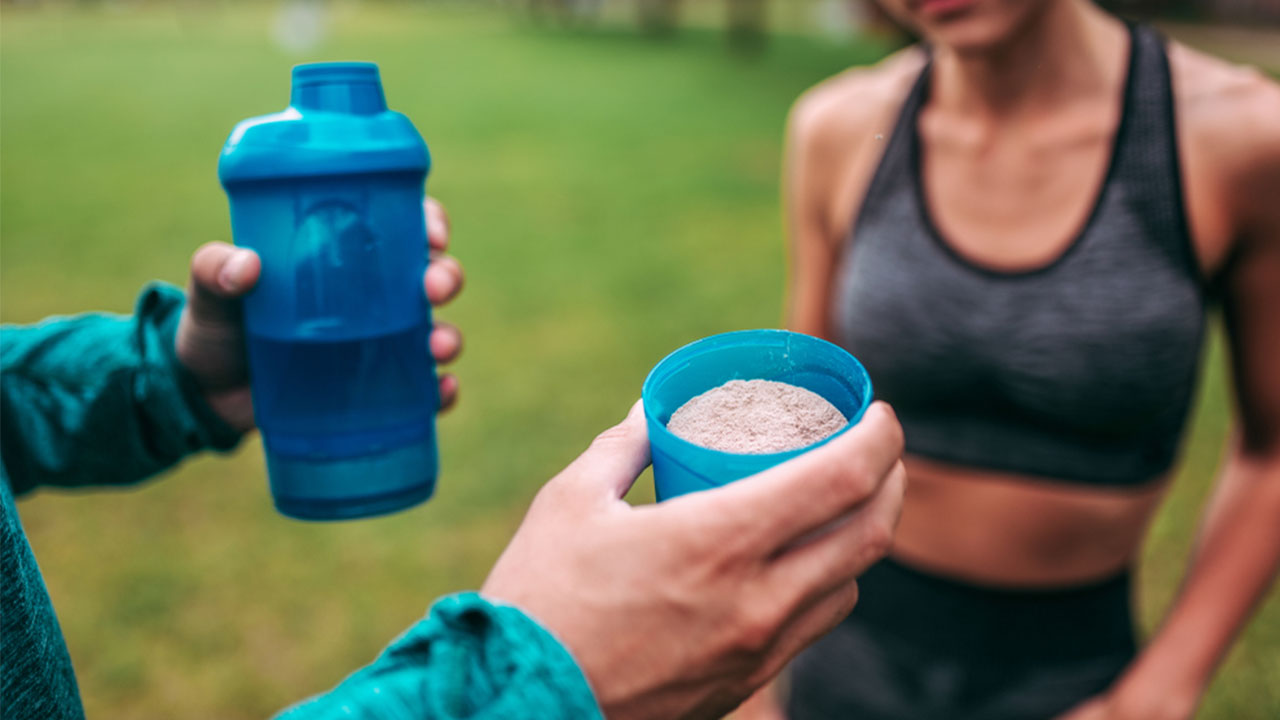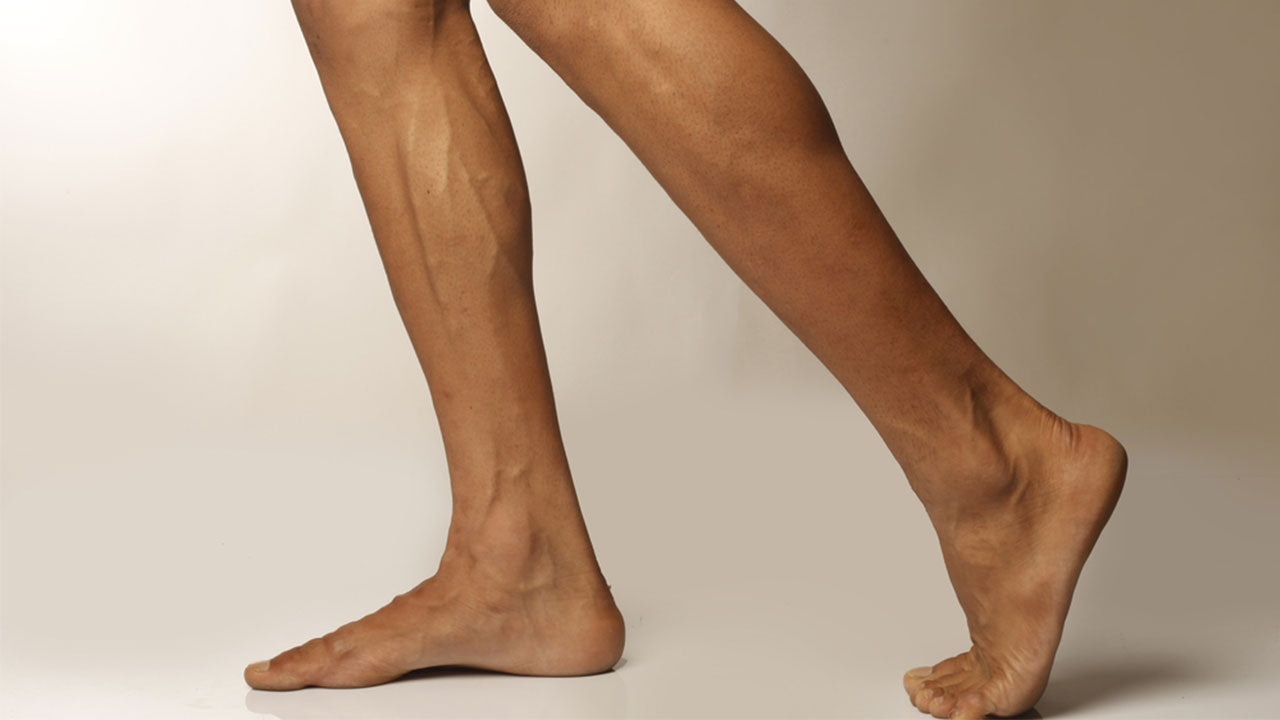What Are the Best Muscle Recovery Foods?
 By: by Amino Science
By: by Amino Science

After starting a new workout, you're in for some growing pains. Delayed onset muscle soreness or DOMS can affect anyone, from those new to working out to elite athletes incorporating different exercises into their routines. Whenever you push your muscles, either with unfamiliar exercises or longer durations, you're creating microscopic tears to the muscles, which then cause stiffness, soreness, and pain. Are sore muscles a good sign? Yes, in a sense, because it means you're using your muscles in new ways that will eventually lead to a better fitness profile. But don't fret! Eating muscle recovery foods can help ease the discomfort and may even help decrease muscle soreness in the first place.
Using food as your method of recovery and prevention may truly be the best road to take. The other suggestions to help muscle recovery either take extra time or come with other risks, and none of them can get in front of DOMS before it starts. Getting a massage after every workout would be great, but do you have the time, the money? Rest and ice packs are perfectly reasonable options too, but it's the rest that might bother you if you're really excited about a new workout and seeing results. Do you really want to take a couple of days off after every workout to let your muscles recover? It might not be a bad idea, but with the right foods pre- and post-workout, it might not be necessary either.
The last refuge to treat the ache and pain of muscle soreness is to use painkillers. Whether it's over the counter fare you'd take for any pains (a wincing headache for example, or to relieve menstrual cramps), or prescription painkillers meant for more serious pains (a wrenched back or dental surgery). And these pain killers come with health-compromising side effects that are best avoided.
So what can you eat that will make a difference? Here are some foods you might want to include on the menu on gym days.

Muscle Recovery Foods
Whether for their protein content, iron content, anti-inflammatory properties, or amino acids, these foods can help your muscles heal faster.
Cottage Cheese
Cottage cheese has around 27 grams of protein per cup, and is often a regular food in the fitness community for those without any dietary restrictions surrounding milk products. In fact, the casein protein found in cottage cheese curds (as opposed to the whey protein found in watery milk) are often isolated and used as a workout protein supplement. As a slow-digesting protein, casein can help build and rebuild muscle while you sleep if it's your last snack before bed.
The essential amino acid leucine is also present in cottage cheese, and comprises around 23% of the essential amino acids in muscle protein (the most abundant percentage of them all). Foods with leucine can help you build muscle by activating protein synthesis, and the faster you rebuild your muscle, the faster your muscle repair and workout recovery!
Eat it plain, or combine cottage cheese with some of the other recovery foods on this list to stack the benefits. Cottage cheese can even be used in baked goods and pancakes or included in protein shakes—don't be afraid to get creative.
Sweet Potatoes
Adding sweet potatoes to your post-workout meal can help replenish your glycogen stores after a tough workout. Sweet potatoes are a great source of vitamin C and beta-carotene as well, and are loaded with fiber which helps to control appetite and maintain healthy digestion and build muscle.
Sweet potatoes can be baked whole in the oven or on a grill, cut into fries, spiced with cinnamon, or made savory with garlic powder and pepper. Enjoy them at the dinner table or on the go: a baked potato wrapped in foil can join you just about anywhere.
Baking Spices
Speaking of what you can put on sweet potatoes, it turns out some baking spices are good for post-workout recovery as well. Not so much in the form of gingerbread cookies or cinnamon rolls, but a study showed that cinnamon or ginger given to 60 trained young women (between the ages of 13 and 25) significantly reduced their muscle soreness post-exercise. If you're already having a sweet potato, make it a little sweeter with some cinnamon, add it to oatmeal, or put some in your coffee for the extra boost.
Coffee
Did we just mention coffee? Good news: coffee's on the list too. Research suggests that about 2 cups of caffeinated coffee can reduce post-workout pain by 48%, and another study showed that pairing caffeine with painkilling pharmaceuticals resulted in a 40% reduction of the drugs taken. If you do need pharmaceutical pain relief, maybe coffee can help you minimize just how much you take—caffeine is a much less dangerous stimulant than pain pills.
Turmeric
Another spice on the list, turmeric contains the compound curcumin, which is an anti-inflammatory and an antioxidant, and has been shown to be a proven and reliable pain reliever. Whether it's helping you with delayed onset muscle soreness or pain from an injury (workout-related or otherwise), turmeric eases both pain and swelling by blocking chemical pain messengers and pro-inflammatory enzymes.
As with the other spices, it can be easily added to baked goods, to coffee, and to oatmeal. With its beautiful golden color, you can even make what's called "golden milk" or a turmeric latte by combining 2 cups of warm cow's or almond milk with 1 teaspoon of turmeric and another teaspoon of ginger, and then sip your muscle soreness away.
Oatmeal
Speaking of oatmeal (and isn't it nice that so many of these ingredients can be easily combined?), it, too, can help relieve muscle soreness. This complex carb gives you a slow and steady release of sugar, along with iron needed to carry oxygen through your blood, and vitamin B1 (thiamin), which can reduce stress and improve alertness. This is why oatmeal is a great way to start the day, but since it also includes selenium, a mineral that protects cells from free-radical damage and lowers the potential for joint inflammation, it's a great food for those in high-intensity workout training as well (like, up to Olympic level training).
Use oatmeal as a daily vehicle for other healthy ingredients, including the spices on this list, and enjoy its reliable benefits.
Bananas
Easily sliced into oatmeal, included in smoothies, or eaten alone, not only are bananas a healthy way to replace sweets (frozen and blended they can even make a delicious ice cream alternative), bananas are also a great way to get much-needed potassium. Research suggests potassium helps reduce muscle soreness and muscle cramps like the dreaded "Charley horse" spasm that contracts your muscle against your will and might not let up until it causes enough damage to last for days. A banana a day could keep the Charley horse away, and is particularly delicious (and helpful) when paired with its classic mate: peanut butter.
Peanut Butter
The healthy fats and protein found in nut butters like peanut or almond butter can help repair sore muscles. A reliable source of protein for muscle building, with fiber for blood pressure aid, vitamin E for antioxidant properties, and phytosterols for heart health, peanut butter offers up a ton of benefit and is easy to eat anywhere. Make a sandwich, use it to help bind together portable protein balls filled with other ingredients, add it into smoothies, or just eat it from the jar with a spoon (no one's judging).
Nuts and Seeds
If you're a fan of protein balls, then you're well acquainted with nuts and seeds, which are great additions to these protein-rich foods. While providing essential omega-3 fatty acids to fight inflammation, various nuts and seeds can provide you protein for muscle protein synthesis, electrolytes for hydration, and zinc for an immune system boost. Something as simple as a baggie full of almonds, walnuts, pumpkin, and cashews can help maximize your muscles. Mixing in seeds (sunflower, chia, pumpkin) adds a healthy density that can curb your hunger and satisfy your appetite for longer. They're small but powerful assets in quick muscle recovery.
Manuka Honey
This is not your grocery store honey in its little bear- or hive-shaped bottle. Manuka honey comes from the Manuka bush in New Zealand, with a milder flavor than that of bee honey and a much thicker texture. It's anti-inflammatory and rich in the carbs needed to replenish glycogen stores and deliver protein to your muscles. Drizzle it over yogurt or stir it into tea to gain its benefits.
Green Tea
Green tea is particularly helpful for muscle recovery purposes. With anti-inflammatory antioxidants, it makes an excellent pre- or post-workout drink to prevent muscle damage related to exercise, and also helps you stay hydrated.
Cacao
Cacao has high levels of magnesium, antioxidants, and B-vitamins, which reduce exercise stress, balance electrolytes, and boost immunity and energy levels. The antioxidant flavanols in cacao also help up the production of nitric oxide in your body, which allows your blood vessel walls to relax, lowering blood pressure and promoting healthy blood flow. Adding cacao powder to your high-quality protein shakes or a glass of cow/almond/coconut milk post-workout will bring you its benefits.
Tart Cherries
Tart cherry juice has been shown to minimize post-run muscle pain, reduce muscle damage, and improve recovery time in professional athletes like lifters, according to the Journal of the International Society of Sports Nutrition. Enjoy tart cherry juice as a drink, or include the dried fruit as a part of your own muscle-building trail mix with the nuts and seeds discussed above. It's not the only fruit or fruit juice you might include either. The nutrients in fruits like oranges, pineapples, and raspberries can also help speed up your recovery.
Salmon
Rich with anti-inflammatory omega-3 fats, muscle-building protein, and antioxidants, salmon is an extremely efficient post-workout food. Not an option if you are vegan or vegetarian, of course, but for the meat eaters among us, or those on the Paleo diet, salmon can specifically help prevent delayed onset muscle soreness, reduce inflammation, and provide you with an abundance of the protein needed for muscle growth. Eat this protein within 45 minutes after working out for maximum effect, either grilled, cooked up in salmon cakes, or raw in the form of sushi or sashimi. All of the above goes for tuna as well, by the way—reasons you might become a pescatarian.
Eggs
If you are an omnivore or ovo-vegetarian, eggs are great way to gain protein first thing in the morning, and an even more effective food to have immediately post-workout to help prevent DOMS. Like cottage cheese, eggs are a rich provider of leucine, and like salmon, eggs contain vitamin D (in their yolks). For your convenience, eggs can be boiled and brought along for immediate consumption after your training. Boil a dozen at the start of each week during your meal prep, and have an easy protein source in the palm of your hand every other day of the week.
Spinach
Did we really get all the way to the end of the list without a vegetable? So sorry! Let's fix that with spinach. A powerhouse of antioxidants, not only can spinach help prevent diseases like heart disease and various cancers, but it also helps you recover quickly from intense exercise. Spinach's nitrates help to strengthen your muscles, and its magnesium content helps maintain nerve function. Spinach helps to regulate your blood sugar (in case you worry about the spikes you might get from the sweeter items on this list), and can be added to many dinners, snuck into smoothies, or eaten on its own either raw or sautéed in olive oil.
Resist Damage and Recovery Quickly
These foods help with recovery from DOMS and reduce the amount of soreness you get in the first place by providing your body with the proteins and nutrients it craves when you're working out to the best of your ability.
A quick note before you go. In your quest for pain-free muscles, you'll want to avoid:
- Refined sugar: Just one sugary soda a day can increase your inflammatory markers, as can white bread and other products with refined sugar. Natural sugars don't bring that kind of adverse effect, so get your sugar from whole foods instead.
- Alcohol: The dehydration caused by alcohol requires its own special recovery, and will deplete many of your vitamins (especially B vitamins). Some research suggests that alcohol can interfere with how your body breaks down lactic acid, which would increase muscle soreness. If you're on a mission to build muscle, it's best to avoid alcohol.
If you're eating pretty well and avoiding what you shouldn't eat, but still find muscle soreness a burden after working out, there is always the option to supplement.
What is the best supplement for muscle recovery? Evidence shows that getting all your body's essential amino acids in balance will help specifically with muscle sprains and pulls, so when supplementing, just make sure you cover the waterfront (rather than choosing one or two essentials and neglecting the rest).
We recommend supplementing with Perform before and during a workout to mitigate muscle soreness, and using Heal to help accelerate recovery from more intense exercise injuries.
Other than that, a diverse diet can be had in choosing natural preventions and remedies for healthy muscle recovery.

Up to 25% off Amino
Shop NowTAGS: exercise
Join the Community
Comments (0)
Most Craveable Recipes




 833-264-6620
833-264-6620



















